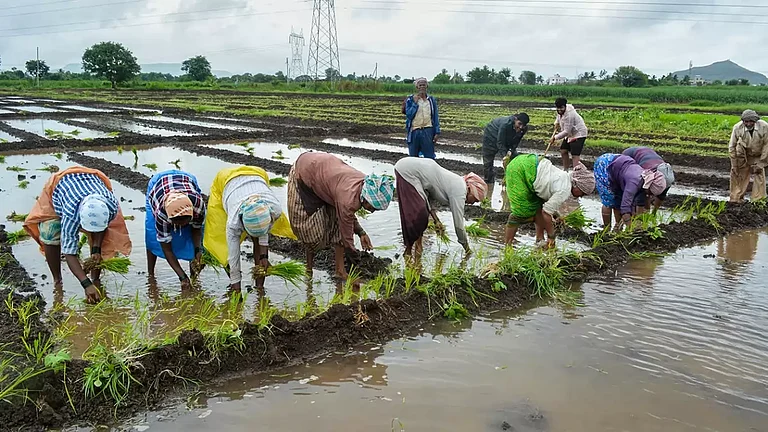Addressing the significant Rs 20 trillion credit gap for Micro, Small, and Medium Enterprises (MSMEs), Ashwini Kumar Tewari, Managing Director of State Bank of India (SBI), noted that despite improvements in data quality and lending practices, the existing credit gap remains substantial.
Outlook Planet C3: Industry Leaders Emphasise Sustainable Financing and Ecosystem Support to Empower MSMEs
Industry leaders highlighted the need for sustainable financing and ecosystem support to drive resilient, inclusive growth for MSMEs in India at the Outlook Planet C3 Summit & Awards.
Tewari said that traditional lending models, which heavily relied on balance sheets and collateral, often restricted MSMEs' access to financial resources. “With the introduction of GST, we now base our lending on cash flow data, which gives a much clearer and more accurate picture of an SME’s financial health,” Tiwari said. This shift towards data-driven, cash flow-based lending models marks a significant change in how financial institutions assess the viability of MSMEs.
These remarks were part of a panel discussion on "Sustainable Financing for SMEs: From Vision to Reality," held at the Outlook Planet C3 summit in Delhi on Monday, March 10, 2025.
Tewari further emphasised the progress in making financing more affordable for MSMEs through government schemes and platforms like the Trade Receivables Discounting System (TReDS). “Schemes like subventions and platforms such as TReDS, where invoice discounting happens at rates between 7-9%, have made financing more affordable for MSMEs,” he explained. He noted that such initiatives represent a significant improvement over previous years, when high interest rates were a major obstacle for many small businesses seeking financial support.
The SBI MD also mentioned the growing importance of sustainability in financing, particularly with regard to energy transitions. “Solarisation is a huge initiative that we are supporting, particularly for smaller MSMEs,” he said, referring to SBI’s Solar Shakti scheme, which helps larger MSMEs transition to renewable energy. This initiative not only reduces energy costs for MSMEs but also aligns with their sustainability efforts, offering long-term benefits.
Concluding his remarks, Tewari said that sustainable financing goes beyond providing capital. “We must ensure that MSMEs are not only financially supported but also equipped to meet future environmental challenges,” he stressed. He called for MSMEs to adopt energy-efficient and circular economy practices to remain competitive as the world shifts toward greater sustainability.
"If India is to become a global superpower, our SMEs must be at the core of the development process, supported by a robust ecosystem," said Tapan Singhel, MD & CEO, Bajaj Allianz General Insurance & Chairman GI Council.
Singhel further underscored that 83% of SMEs in India are uninsured, and a lack of adequate coverage results in a 2% loss to India’s GDP, saying “we cannot afford if we are to achieve our Viksit Bharat vision".
Expanding on the Viksit Bharat vision, Shaji KV, Chairman, NABARD explained, "The vision for a Viksit Bharat can’t be realised without equitable growth, and we must fast-track development in rural areas to improve per capita income and provide a wide range of services, not just financial, but advisory as well."
"We are collaborating with financial institutions, research stations, and other entities to develop agricultural varieties resistant to environmental shocks, including drought-resistant crops," shared Shaji, emphasising the need for innovation to support rural MSMEs.
"The new instruments being introduced are a form of blended finance, where the benefits must be passed on to MSMEs to incentivise their participation. Bankers essentially act as intermediaries in this process. In my opinion, it's not just about the interest rate; it's also about implementing best practices. I would prefer affordability, with costs not exceeding those of domestic sources, alongside the adoption of best practices. If these two elements align, we can achieve good results," said Manoj Mittal, CMD, SIDBI.


